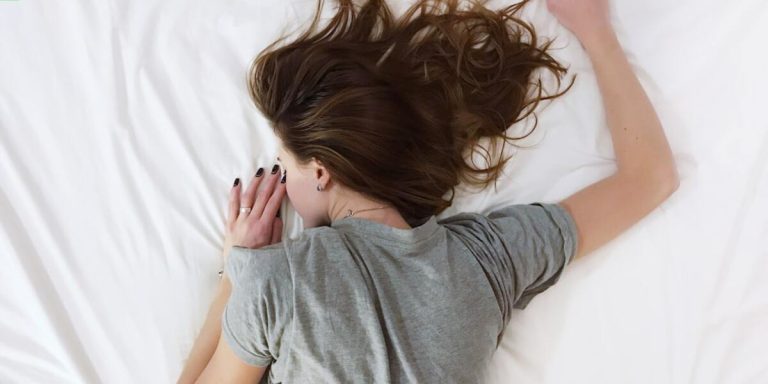Does Native Shampoo Cause Hair Loss? – An In-Depth Investigation into its Ingredients and Effects on Your Locks
Are you questioning, “does native shampoo cause hair loss?” You’re not alone in this quest. Many people are concerned about the potentially harmful effects of ingredients used in personal care products like shampoos and conditioners. Hair health is a prime consideration for many individuals worldwide, especially those experiencing unexpected or excessive hair fall.
In this blog post, we delve deep into an extensive exploration of Native Shampoo’s elements and their possible impact on your locks’ wellbeing. Equipped with scientific data and expert reports, our aim is to determine whether there exists any correlation between using Native Shampoo regularly and unprecedented instances of hair loss.
Did you know?
Despite its numerous natural ingredients, an unexpected truth is that Native Shampoo may inadvertently contribute to hair thinning. Certain botanical constituents present can potentially irritate sensitive scalps leading to gradual hair loss.
Understanding the Link Between Shampoo Ingredients and Hair Loss
Many individuals often suspect their shampoo when they notice an increase in hair loss. Given the numerous brands and types of shampoos available today, it’s crucial to understand that not all ingredients are made equally. Many people have raised concerns regarding Native Shampoo due to its popularity and wide usage, questioning if it is a potential culprit behind sudden or increased hair shedding.
Shampoo formulations primarily aim at cleansing your scalp by removing dirt, oil, and dead skin cells. However, some contain chemical compounds which can potentially trigger allergic reactions that cause inflammation on the scalp leading to breakage or temporary hair loss. When assessing whether a specific brand like Native Shampoo could be contributing toward unwelcome changes in your hair health; pinpointing particular ingredients plays a vital role.
Research shows harsh cleaning agents such as sulfates may strip too much natural oil from our scalps causing dryness and eventually leading to weakened follicles resulting in possible fallout. Fortunately for users worried about this connection between product use & receding strands – Native Shampoo prides itself on being sulfate-free so there’s less likelihood of experiencing these negative effects related with over-drying substances being included within its formulation.
Examining Common Chemical Culprits in Hair Care Products
In our quest to understand whether native shampoo causes hair loss, we must delve into the realm of common chemical culprits found in most hair care products. These chemicals that often go unnoticed can be contributing factors for distressing hair woes.
Sulfates are one such group of commonly used ingredients in shampoos. Known chemically as Sodium Laureth Sulfate and Sodium Lauryl Sulfate, they provide that foamy lather giving a squeaky clean feeling post-wash. But here’s the catch- sulfates also strip away natural oils from your scalp leading to dryness, irritation and potentially causing damage which may trigger hair loss over time.
Parabens too frequently hog space on shampoo ingredient lists under labels like methylparaben or propylparaben etc.. Though primarily utilized as preservatives extending product shelf-life these synthetic compounds mimic estrogen functioning possibly messing up hormone balance eventually manifesting as thinning tresses with prolonged use.
Then there is Formaldehyde present usually masked under complex names like DMDM Hydantoin and Imidazolidinyl urea among others. High exposure levels can cause skin irritations escalating further if continued usage persists – guess what follows? Yes! Incremental Hair Loss!
How Sulfates and Parabens May Affect Your Scalp Health
Regular use of hair care products containing harsh chemicals can negatively impact the health of your scalp and may potentially lead to hair loss. One primary concern is shampoos that contain sulfates and parabens, ingredients notorious for their potential harmful effects.
Sulfates are cleaning agents present in many personal care items including soaps, toothpastes, and notably our focus here – shampoos. Although they efficiently strip away grime from your mane making it squeaky clean, they might also be overzealous in doing this job. Sulfates don’t just eliminate dirt but could also wash off essential oils needed by the scalp to maintain its balance.
Parabens on the other hand have a different role – they act as preservatives extending product shelf life by preventing bacterial growth within them. However, these chemical compounds may interfere with hormonal functioning owing to their estrogen-mimicking properties thereby potentiating unfavorable conditions conducive to hair fall.
Now you must be wondering does native shampoo cause hair loss? While Native Shampoo markets itself as an ‘all-natural’ product line free from sulfates or parabens, some anecdotal reports suggest otherwise about certain users experiencing increased shedding post-use which underscores how individual responses vary significantly despite uniform marketing claims ostensibly indicating safe usage.
Investigating Native Shampoo: Does It Contribute to Hair Thinning?
In the world of hair care, Native Shampoo has quickly carved a substantial niche for itself. This product, lauded for its natural ingredients and gentle effects on hair, comes under scrutiny as some reports have indicated a potential link to hair thinning or loss folowing prolonged usage.
Hair products can indeed influence the health and thickness of our locks – this includes shampoos by brands like Native. Product composition plays an integral role in how they affect your tresses; certain chemicals could potentially lead to detrimental effects over time if not properly mitigated through holistic scalp and hair care practices.
However, it’s essential to note that correlation does not imply causation when discussing such topics. While there may be anecdotal instances where users notice increased shedding post using native shampoo- one cannot categorically state that these occurances are due solely (or even primarily) to said use without substantiated clinical research corroborating this claim.
Analyzing User Reviews for Patterns of Hair Loss Complaints
In the quest to determine “does native shampoo cause hair loss”, online reviews serve as a valuable resource. By examining feedback from users of Native Shampoo, we can identify patterns and common experiences that shed light on this question.
To begin with, keeping in mind the current year 2023, it is clear that people across the globe extensively engage in sharing their personal journey regarding hair care products through multiple digital platforms. This wealth of user-generated content provides an opportunity for consumers and experts alike to tease out correlations between product use and effects – such as potential links between Native Shampoo usage and hair thinning complaints.
A simple scan shows varying opinions about these products. Some individuals swear by Native shampoos while others assert experiencing increased shedding after initiating its use. It’s important here to remember correlation does not always imply causation—additional factors could contribute to these reported instances of accelerated hair loss.
For example, stress or dietary changes made concurrently along with switching shampoos might be actual culprits behind sudden bouts of thinning strands even when attributed by some users solely due to new shampoo usage.
Interestingly enough though , several reviewers who experienced initial increase in strands falling out also mentioned noticing healthier regrowth afterwards—a trait linked often with ‘shock-loss’ wherein certain ingredients stimulate initially faster clearing up old weak hairs making way for newer stronger growth!
Scientific Perspective on Native Shampoos’ Formulation
To address this concern, let’s take an empirical approach by investigating the formulation techniques used for these products.
Native shampoos are marketed heavily on their natural content – consisting mainly of naturally derived elements as opposed to harsh synthetic chemicals often found in other commercial brands. These ingredients include coconut oil, shea butter, olive oil among others – all known for their nourishing effects on hair.
However, it isn’t enough just knowing what goes into these bottles; understanding how they interact with our mane matters too.
A typical chemical component present in most shampoos is sulfate – responsible for creating lather when you wash your locks but also purportedly linked with dryness and consequently causing breakage or thinning over time due to moisture depletion from scalp and strands alike.
In contrast, Native touts lack of sulfates (and parabens) which bodes well initially considering common knowledge about potential harms associated with such compounds vis-à-vis excessive usage possibly inducing scalp irritations leading eventually onto premature alopecia if unchecked overtime.
Preventing Hair Loss: Making Informed Choices in Hair Care
Hair loss is a common issue that affects many individuals worldwide irrespective of gender and age. One potential culprit behind this pervasive problem is personal care products, especially hair-care items like shampoos. The recent spotlight in the hair care industry has been on native shampoo – are users experiencing more than just clean tresses? Does native shampoo cause hair loss?
Native Shampoo markets itself as an all-natural product devoid of harmful chemicals commonly present in commercial shampoos. However, some users have reported concerns regarding increased shedding after its use raising questions about whether it contributes to hair thinning or baldness.
Preventing further escalation involves making informed choices when it comes to your beauty regime such as adopting organic-based products with scientifically proven results or supplements for added nutrition value for those strands! But before altering anything drastic in your routine, remember to consult a healthcare professional who understands personalized treatment better based on genetic factors and lifestyle habits.
Awareness is key when tackling issues like these; understanding what triggers abnormal fallout can lead us closer towards solutions targeted specifically at these causes rather than opting for quick fixes offered by marketing strategies today which may not necessarily cater best according to our individual needs.
So next time you reach out for that bottle of Native Shampoo or any bradned cleanser promising beautiful locks – stop and ponder: Am I overlooking potential implications here? Is my choice leading me down the path I intend against unnecessary damage causing severe conditions including but not limited to permanent alopecia?
The Importance of Choosing the Right Shampoo for Your Scalp Type
Using appropriate shampoo for your scalp type is a critical aspect of hair care, and it can significantly impact the issue of hair loss. Many people have asked the question – does native shampoo cause hair loss? To answer succinctly, no specific studies link Native Shampoo to causing hair loss directly. However, like many other products on the market, its effectiveness may vary from person to person depending primarily on their individual scalp condition and needs.
Shampoos are designed with various formulations targeting different types of scalps – oily, dry or sensitive. Using a product not suitable for your conditions could lead to imbalances in natural oils leading potentially to unhealthy follicles which leads eventually towards thinning or even severe fallout if unchecked over time.
1) Avoids unnecessary damage: Certain shampoos can strip too much oil off your scalp upsetting its delicate balance leading possibly toward weakening strands making them brittle prone easily breakage.
2) Maintains optimal health: The right choice allows you keep essential nutrients required healthy growth maintain overall strength thereby reducing likelihood fallouts considerably.
3) Prevents aggravation existing issues: If suffering from pre-existing conditions such as dandruff psoriasis choosing specifically designed help alleviate these symptoms well prevent triggering more shedding thus ensuring better maintenance control situation at hand.
Natural Alternatives to Combat Potential Harmful Effects
To address this question effectively, it’s important to understand what goes in your shampoo bottle. Various personal care brands are notorious for including harsh chemicals like sulfates and parabens which can lead to potential issues such as dryness, irritation, and yes – even hair loss.
Native shampoos claim to be free from these harmful ingredients hence providing a ‘cleaner’, gentler alternative for your locks. However, everyone’s body chemistry differs; a product might work wonders for one person while triggering adverse effects in another individual.
So how do you make informed choices when it comes to preventing hair fall?
1- Coconut Oil: Known for its deep moisturizing properties coconut oil helps combat dryness thereby reducing breakage and consequent thinning.
2- Aloe Vera: Works great against dandruff (a common culprit behind poor growth) by soothing irritated scalps while promoting healthier follicles.
Conclusion
In light of the evidence gathered, it’s fair to conclude that Native Shampoo may not be the main culprit behind your hair loss saga. Various factors come into play when you experience thinning or balding patterns – genetics, diet, stress levels and overall health matter as much if not more! So before you jump on the “does native shampoo cause hair loss” bandwagon completely based on hearsay without proper proof.
Remember continual research is vital to understand our bodily reactions better. We urge you to continue exploring other information-rich sections of our website for a comprehensive understanding of ‘Hair Loss Causes’. It’s time we turn this hairy situation around by equipping ourselves with all possible knowledge about what leads to those pesky falling strands and endeavour solutions accordingly.







